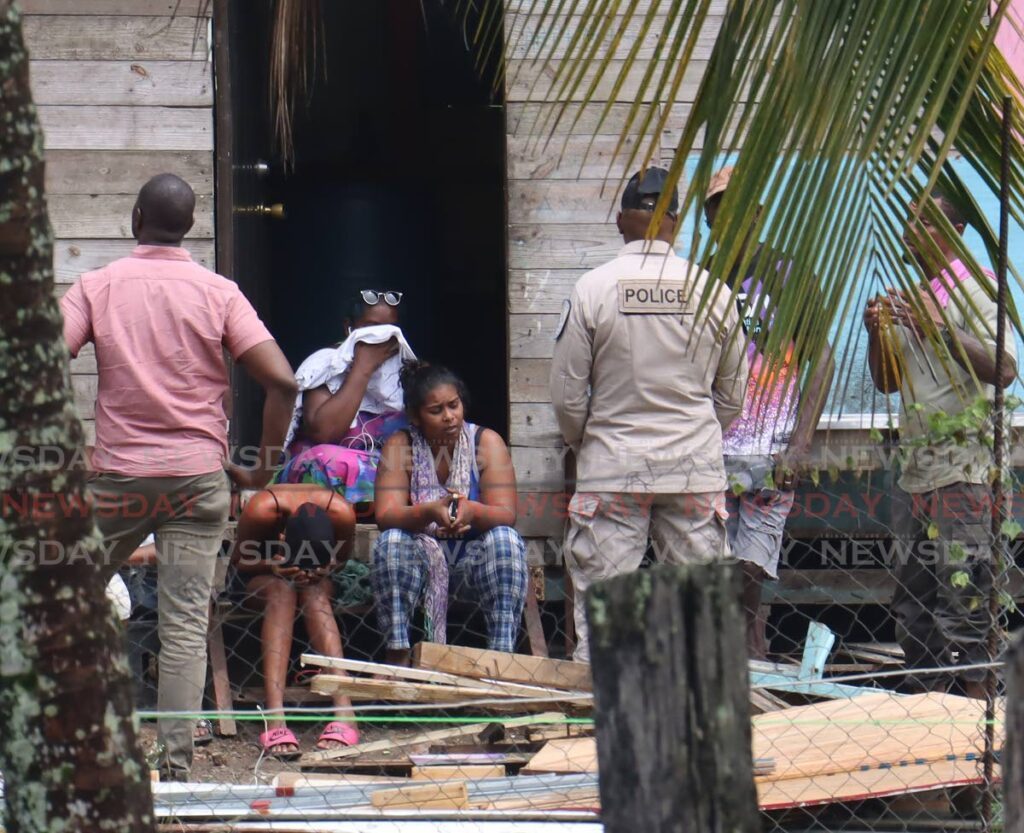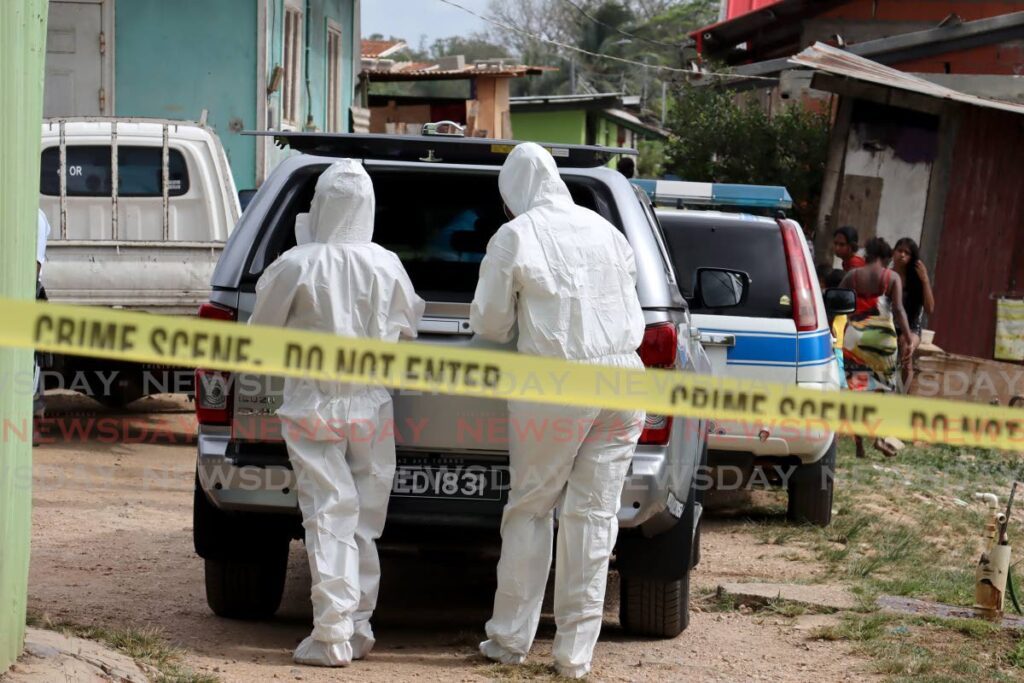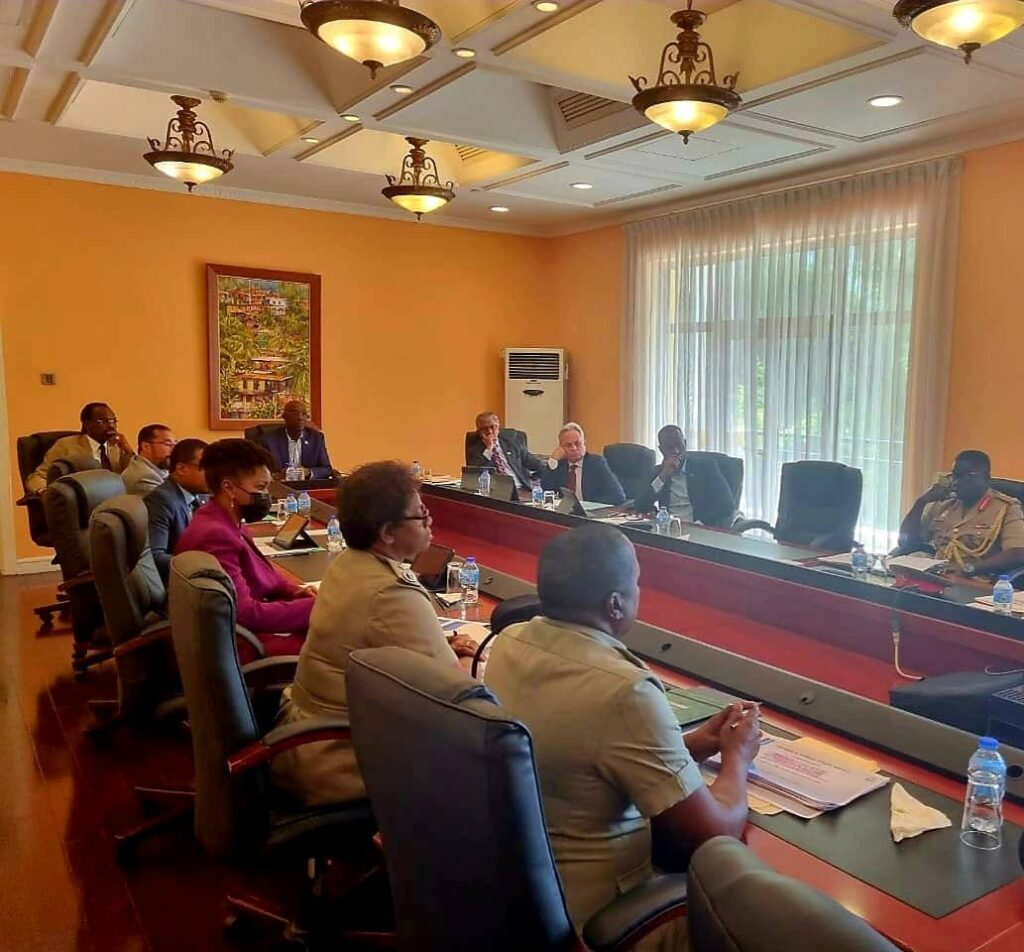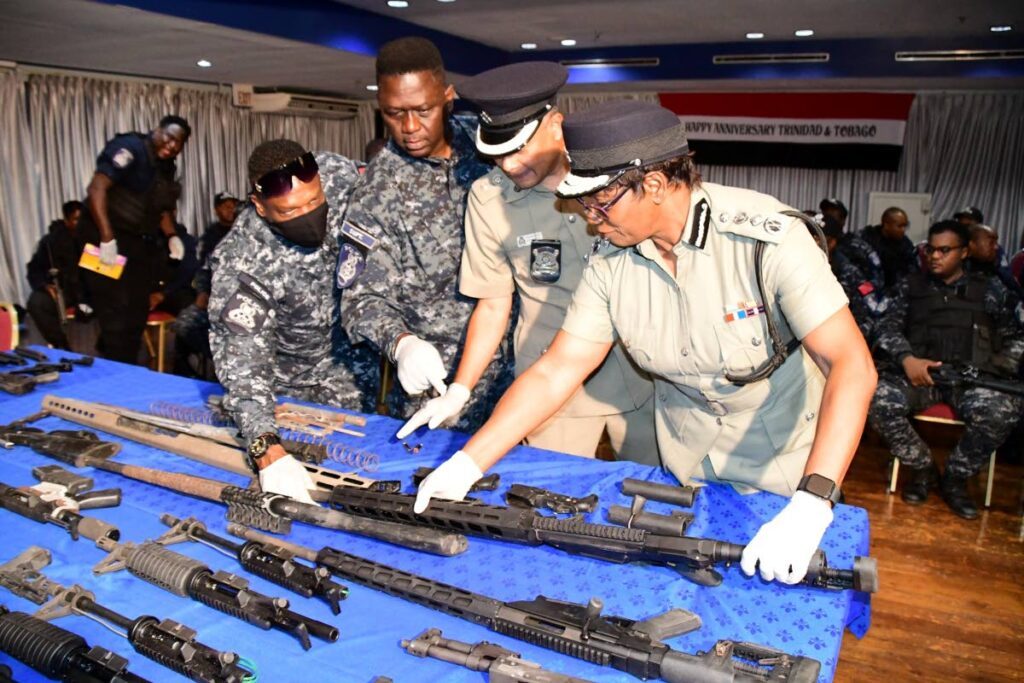PM not satisfied by anti-crime gains as murders reach 575

With one day left before the end of the year, the country has already marked the second-highest murder tally in its history.
Last year, the murder rate blew past 2019's record of 538 to hit a staggering 605 but, as of December 30, the toll has climbed steadily to 575.
Data from the Crime And Problem Analysis (CAPA) Branch of the TT Police Service (TTPS), which were updated to November 2023, said the highest number of murders occurred in January with 61, and the lowest in October with 34.
Also, the Northern Division had 148 murders, making it the deadliest by far, while the Eastern Division had the least with 31 murders.
Of the 525 murders committed up to November, a mere 42 were detected, which was an eight per cent detection rate and the lowest rate in the past ten years.
In 2022, the detection rate was 13 per cent while the rates from 2014-2021 ranged from 16-22 per cent.
In a media release on Saturday, the Prime Minister said the results of crime prevention plans and strategies by the National Security Council, the police and the wider security services had not been satisfactory but the country remained focused on getting better results.
His comments follow a rash of murders in the last days of this year, including a quadruple killing off the Churchill Roosevelt Highway, near Spring Village, Valsayn on December 27, where an innocent woman was shot dead, and the kidnapping of El Socorro businesswoman Anesha Narine-Boodhoo on December 29, which have sparked outrage by citizens.
He said the NSC met “fairly regularly” and had “certain operations” in place. He added that the national security services were being constantly resourced to keep them available and effective.
Rowley said 50 new patrol vehicles were recently approved for the police and the Defence Force, and the protective services were continuously detecting and managing the millions of rounds of ammunition and thousands of illegal firearms in the country.
He said criminals were brazen because they believed they would not be caught and that, if they were, they had nothing to fear from the judicial system. Rowley said officers would continue to try to prove them wrong but their job would be helped by more information from members of the public.
“To this end, we appeal to the public to assist in this fight, to eliminate these frequent outrages and gun crimes, in general, by providing as much information as you are able to so that the security service personnel can get ahead of the criminals before they callously add to the death and destruction that a handful of citizens wreak upon the vast majority of the population.

“An illegal gun in the hand of a citizen is not security to anyone. It is simply a clear and present threat to the lives of all citizens since any such weapon can only be used in committing a crime and frequent use of such weapons only helps to add to the suffering.”
He said keeping quiet about illegal weapons, intentions and actions would be the best gift people could give any potential shooter.
Meanwhile, he said, the protection of society will remain the duty and focus of the state as it confronts those who chose violent crime as their contribution to the nation’s challenges.
In February during Parliament's Joint Select Committee (JSC) on National Security, Police Commissioner Erla Harewood-Christopher promised a reduction in murders by June and an increase in the detection and prosecution of crime.
She also promised to dismantle gangs, reduce the number of drug blocks in TT, increase police visibility, and increase accountability and transparency within the police service, all while promoting a positive image of the police.
She told the committee, “We are implementing new strategies to deal with violent crime. As the strategy takes effect we will see a reduction.
“We’d expect to see a change in the murder rate short-term by June, and long-term by December.”
In April, Harewood-Christopher revealed her two-year crime plan to reduce murders and violent crimes by 20 per cent, increase gun seizures by 15 per cent and improve the detection rate to 30 per cent.
Some of the initiatives included precision policing, focusing the resources of the police to address violent crime, dismantling of criminal gangs by using precision policing and legislation, targeting communities with high reports of crime, retrieval of illegal guns, focusing on transnational crime by using available resources, targeting gun and drug trafficking, human trafficking, money laundering and cybercrime.
Speaking at a symposium co-hosted by the UWI Trade and Development Unit and the Confederation of Regional Business Chambers at UWI, St Augustine, she too called on people to work with the police to address crime.
“We will build relationships with key stakeholders including the public, community groups, business organisations, religious groups, schools, NGOs, etc. And will conduct community needs assessment and develop and implement policing and strategies and tactics that are appropriate to the particular community.”

At the police Independence Day toast at the Police Administration Building in Port of Spain, Harewood-Christopher boasted that, after an increase in the first months, the murder rate had decreased by ten per cent and was the same as last year’s at 392.
“Our intelligence machine has served us well. I have the confidence that our strategies are working and we are making strides toward achieving our objectives.
“But I understand very well, that to safeguard that progress, we must continuously review and update our planning, strategising and implementation as we continue to be confronted by desperate, dynamic, resourceful and innovative criminal elements.”
Harewood-Christopher did not respond to questions by Sunday Newsday about challenges or gains made during her first year in office.
Police also made some significant gains in the recovery of illegal guns and ammunition and drug busts this year with the discovery of “ghost guns” which were being made with a 3D printer.
In August during a raid at a house in the Caparo, police seized a number of firearms, ammunition, and projectiles, a 3D printer and a computer system. Officers acting on information received information that a man was making guns for criminal groups in the country. The guns had no serial numbers or other identifying marks, making them harder to track if they had been used in a crime.
In October, the police found and seized a large quantity of heavy-duty firearms and ammunition in a forested area in Santa Cruz which the PM described as a threat to the state.
The police said the find was the result of two and a half months of intelligence by the Inter-Agency Task Force and the Guard and Emergency Branch. The cache included AR15s, M16s, mini Uzis, 50 calibre rifles, 12-gauge shotguns, and ammunition of 7.62 mm and 5.56 mm calibres plus armour-piercing bullets.
In May, one of the largest drug busts in TT took place at a Chaguaramas hotel after police received information in March about a large shipment of cocaine destined for the US. The 168 kilogrammes of cocaine with a street value of $234,457,344 were seized.
Keon Aberdeen, of La Fillete Village, Las Cuevas was charged with possession of cocaine for the purpose of trafficking. He was also charged with possession of a Glock semi-automatic pistol fitted with an automatic selector, an extended magazine and 13 rounds of 9 mm ammunition.
At the time Harewood-Christopher said, “We have worked closely with our regional and international partners and our joint efforts resulted in what can be described as the largest land seizure of cocaine ever in TT. We will continue to partner with our law enforcement counterparts in the US to wage a forceful and relentless war on the regional drug trafficking networks and those who profit from the illegal drug trade.”
Despite the wins, murders continued to traumatise the country. Some of the more concerning were the terrorisation of residents in Trainline, St Augustine South, the murder of four siblings in their Guanapo home, and the record number of murders in Tobago.
From January to May, seven people from Trianline were shot and killed, some of their homes torched, in what police believed was linked to ongoing gang warfare in the community.
It started in January with the deaths of Darshan Ramnauth, 16, and Geno Shah in a drive-by shooting. Dillon Kyle Pillai, 21, of Five Rivers, Arouca, was charged with the murders of Ramnauth and Shah.

The deaths continued with Aneesa Ramkissoon in March; Daniel Riley, 21, in April; watermelon vendor Dillon Joseph, cousin of Ramnauth, Kris Pooran, and cousin to Shah and Joseph, coconut vendor Roger Maraj in May.
In addition, innocent bystanders were wounded and an unborn baby lost its life. The violence led many people, including Maraj, to move out of Trainline to find safety.
Another incident that shocked citizens was the shooting deaths of four siblings in their home in the Heights of Guanapo, Arima, on September 21.
Jalani Rivers, 22, and Jodel Noel, 24, both from the Heights of Guanapo, were charged with the murders of Faith Peterkin, ten, Arianna Peterkin, 14, Shane Peterkin, 17, and Tiffany Peterkin, 19.
They were also charged with five offences of having a gun and ammunition and shooting with intent as they injured five more of the victims’ family members when they forced their way into the family’s home at La Retreat Extension after midnight shooting at family members.
Then there were 14 murders in Tobago as of December 30. The latest victim was Clifford Ramsook whose body was found with gunshot wounds on Saturday morning at the side of the road in Goldsborough, Tobago.
The police have expressed concern over the killings, especially as some seem to be gang-related. So much so that a team of police officers from Trinidad was sent to the Tobago Division to provide reinforcement in the past few weeks.
On December 20, Akeim Frith, 33, an alleged member of a Tobago Sixx Gang, was shot and killed and head of Homicide Snr Supt Rishi Singh said the police were preparing for possible reprisal killings.
Tobago’s 11th murder was the only one not committed with a firearm. It was that of 39-year-old mother of two Jenelle Thomas-Stowe, who was doused with gasoline and set on fire in her Signal Hill home.
On December 29, Devon Stewart appeared before a Master of the High Court in Scarborough charged with her murder.
Murders by month 2023:
January – 61
February – 42
March – 38
April – 53
May – 49
June – 44
July – 49
August – 58
September – 54
October – 34
November – 43
December (30) – 48
Murders by division up to November 2023:
Central – 85
Eastern – 31
North Eastern – 64
Northern – 148
Port of Spain – 47
South Western – 34
Southern – 56
Tobago – 10
Western – 50


Comments
"PM not satisfied by anti-crime gains as murders reach 575"